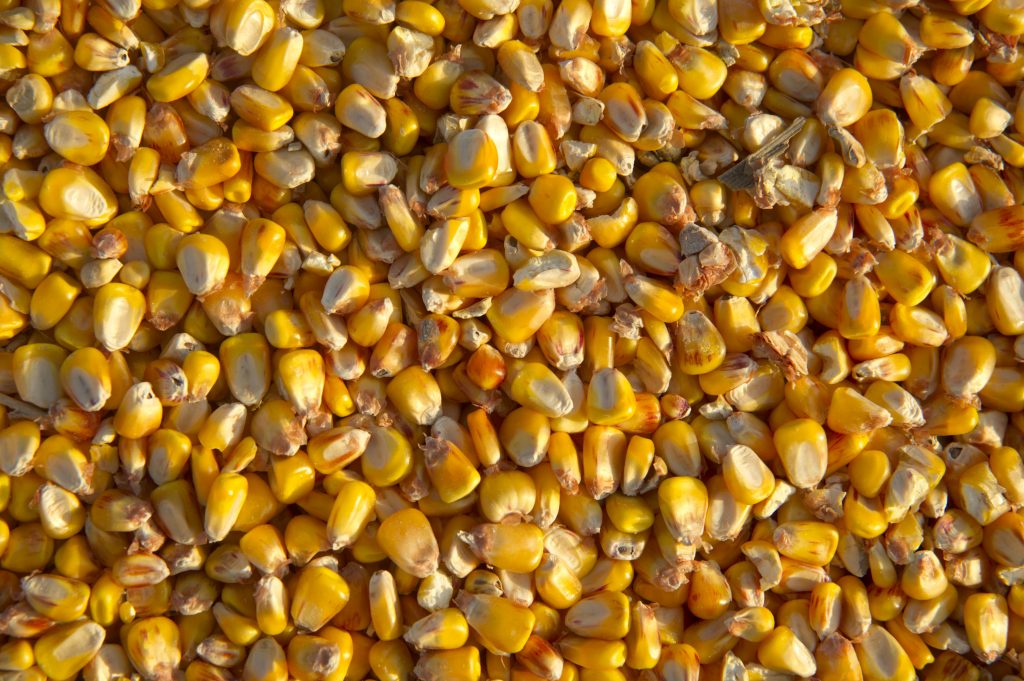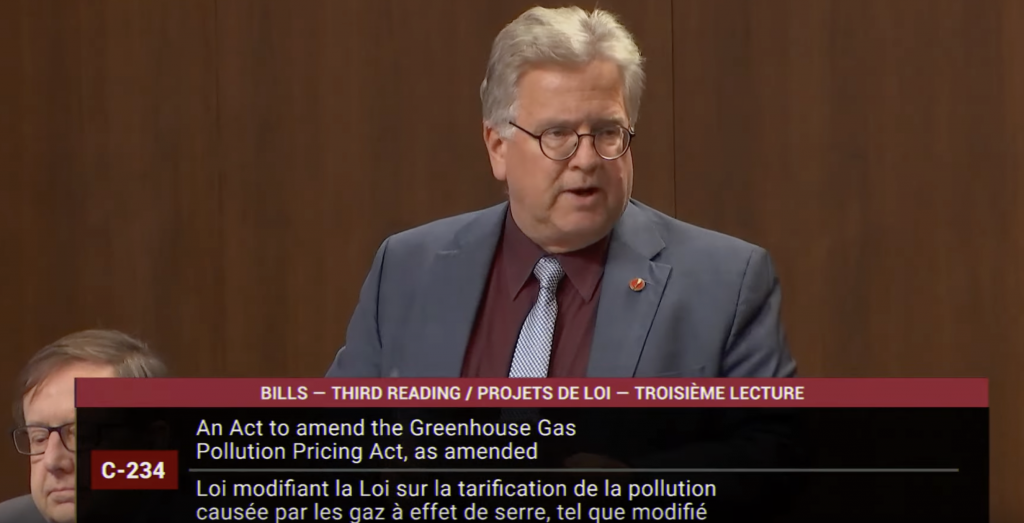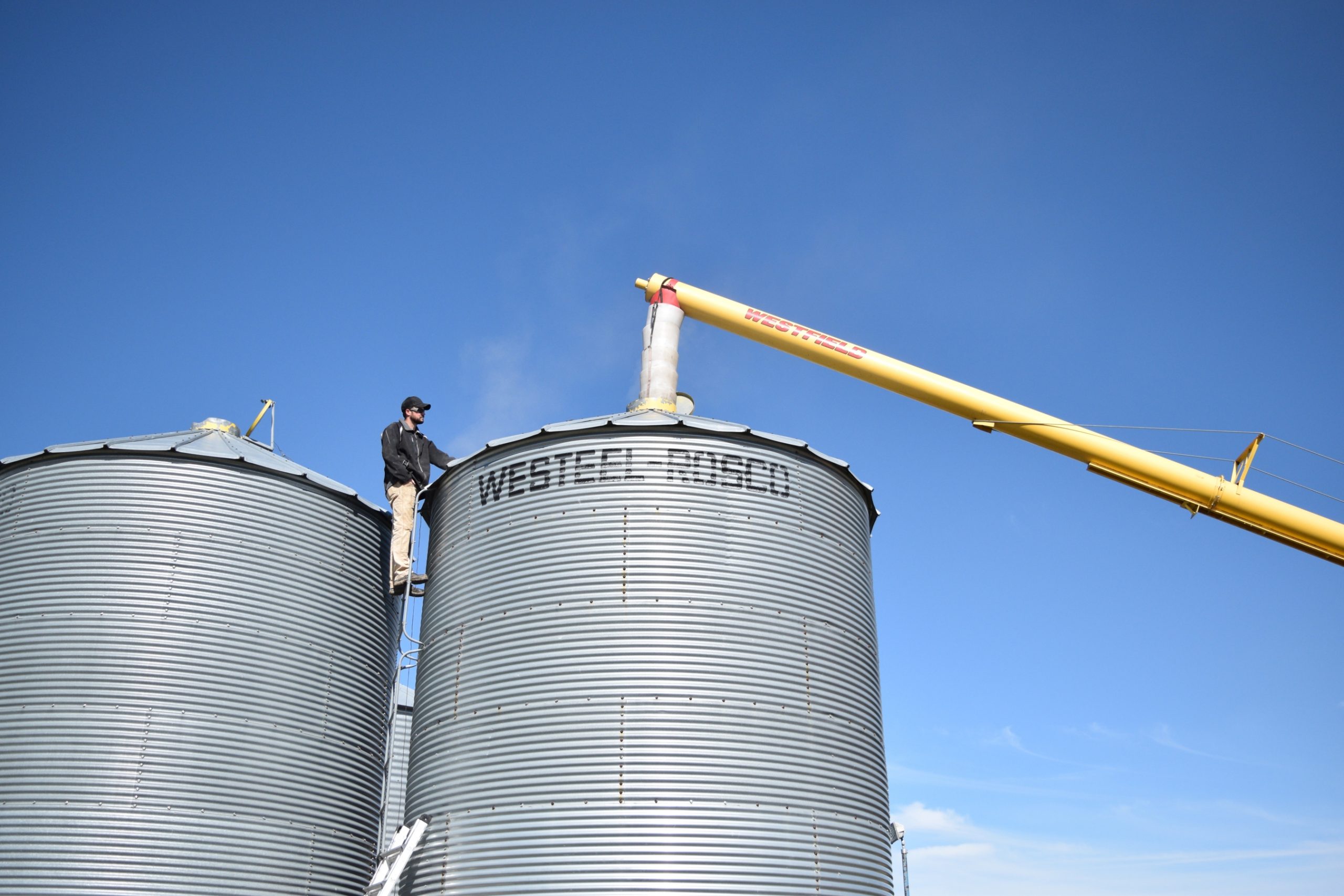WELLINGTON COUNTY – Each fall combines can be seen lumbering along rows of corn, trailed by a thick golden cloud of chaff as the year’s crop is harvested on Wellington County farms.
The grain is carted off to dryers and elevators, where excess moisture is removed so it can be stored without spoiling.
The heat is generated by propane or natural gas, both currently subjected to the Liberal government’s multiplying carbon tax.
Local farmers tell the Advertiser the cost is burdensome and the government increases the tax each April – and continues doing so through to 2030.
Introduced in 2018 by the Liberals through the Greenhouse Gas Pollution Pricing Act, the tax is aimed at modifying behaviour to reduce Canada’s carbon footprint and meet its international climate change commitments. Those include a Paris Agreement emissions reduction target of 40 to 45% below 2005 levels by 2030, and net-zero by 2050.
Though the carbon price sits at $65 per tonne of emissions, come April 1 the cost increases to $80 per tonne. By 2030, it will reach $170 per tonne.
‘It’s a dead expense’
Wellington Federation of Agriculture past-president Janet Harrop crops 350 acres of corn, soybean, wheat and alfalfa at Harrcroft Acres in Centre Wellington.
Harrop said the operation is getting back $3,015 after spending $66,800 on fuel, including propane, from January through October last year.
Trish and Dean Scott, who grow wheat, soybeans and corn at Walnut Ridge Farm north of Guelph, spent $10,000 drying corn last year, with around $1,000 of that spent on carbon tax alone.
More than doubling of the tax by 2030 will bring a significant cost to the farm and squeeze margins, Trish said.
“The sustainability of the Canadian primary agriculture system is at risk of being eroded at an accelerated pace because of carbon tax,” she said.
“Trish and Dean will pay a carbon tax on their grain drying; they can’t pass that cost on to anyone,” Michael Sharpe stated in an email. “It’s a dead expense to them.”
The Scotts dry their grain at Sharpe Farm Supplies’ grain elevator in Guelph/Eramosa. An invoice includes expenses such as gas, hydro, infrastructure, labour and, of course, the carbon tax.
According to Sharpe, the tax has easily added an additional expense of $11 per acre of dried corn. Though he said that may not sound alarming for a single acre, it adds up to $5,500 across 500 acres.
“The farmer gets nothing out of paying a carbon tax, other than being penalized,” Sharpe wrote.
Others such as Centre Wellington farmers Ron and Heather Whitelaw dry on-farm, rather than use a commercial service. Their dryer runs for one to two months at the fall harvest, with the dried corn feeding 1,600 hogs each year.

Corn kernels Photo by Farm and Food Care
“We spent just shy of $13,000 on propane this past fall,” Ron said.
That doesn’t include $2,500 in carbon taxes alone.
“I have no way of recouping it, I can’t add dollars to my product,” Ron said. “It’s frustrating when you can’t compete in the marketplace.”
The Whitelaws will have been operating their farm for 38 years when the April increase arrives.
They worry about ever-increasing taxes when they are already struggling with expenses.
Ron said if there was a viable alternative to propane or natural gas, “farmers would be doing it already.”
Ontario Agri Business Association (OABA) executive director Russel Hurst told the Advertiser the carbon tax may work at an academic or philosophical level, but it doesn’t translate to an on-farm reality where propane and natural gas are needed.
“In an Ontario scenario, there really isn’t proven technology to work at rapid pace in a fall harvest period and at scale,” he explained.

Russel Hurst
For farmers, he said, “it just becomes a tax … because you have no viable alternatives.”
Agriculture has become collateral damage of a larger government-driven policy agenda, Hurst said.
“What we try to do from an agriculture standpoint is seek carve-outs,” he said.
“It’s not perfect, but it’s living in the real world to some degree of navigating government regulations.”
That’s where the much contentious Bill C-234 comes in – and before it, Bill C-206.
Introduced by Grey-Bruce MP Ben Lobb in 2022, the bill was intended to exempt from the carbon tax propane and natural gas used by farmers for drying grain and heating/cooling livestock barns and greenhouses.
According to reports from the non-partisan Parliamentary Budget Officer, the exemption would save farmers an estimated $69 to $273 million, depending on what version of the bill was passed, between 2023 and 2026.
The bill left the House of Commons in March 2023 with a vote of 176-146 in support, including three Liberal party members.
Senate roller coaster ride
Senator Rob Black told the Red Chamber the carbon tax is actually a “tax on a tax” – the tax itself is taxed with GST – and has frustrated farmers already contending with rising costs and narrow profit margins.
(Parliament is currently considering Bill C-358, aimed at removing the goods and services tax charged on the carbon tax.)
The legislation went through seven agriculture committee meetings chaired by Black between Sept. 21 and Oct. 24. The committee heard from 24 witnesses and received 21 written briefs.
Senators Pierre Dalphond and Paula Simons suggested farmers wouldn’t embrace new technology without being penalized for using older equipment.
Senator Yuen Pau Woo said farmers recoup each dollar paid on carbon taxes, which is false.
The federal Farmers Tax Credit provides a return of less than a per cent on eligible farm expenses; the credit doesn’t exclusively account for taxes paid on fuel, and it doesn’t amount to a dollar-for-dollar return.
Dalphond suggested many alternatives are available to farmers to heat barns, including better insulation, in-floor heating, geothermal heat pumps, biomass heating, and heat-reflective paints.
However, University of Guelph professor David Lubitz, who does research on engineering and energy and testified before the committee, said fuel and technology alternatives are years away from being commercially viable.
Heating barns and drying grain requires substantial amounts of fuel, Lubitz said, suggesting a transition away from natural gas or propane would require massive demand on electricity or a biofuel.
Black said the carbon tax would meanwhile take money away from farmers who could use it for investments in future tech.
In November, Black asked federal environment minister Steven Guilbeault directly if he would support carbon tax relief for farmers.

Canadian Senator Rob Black speaks in the Red Chamber on Dec. 12, 2023. Screenshot
“Where we are putting a price on pollution in the farming sector is where alternatives exist, and we’re supporting the farmers to adopt these alternatives,” Guilbeault said.
The minister emphasized the government’s funding to cost-share on new grain drying equipment. As of Nov. 22, the minister said just 128 projects had been approved across the country.
Senators passed an amended Bill C-234 in a 29-24 vote on Dec. 12.
It left the Red Chamber and returned to the House with no exemption for gas used to heat/cool barns or greenhouses, or grain drying at commercial operations, and an eight-year sunset clause on the exemptions was reduced to three.
Black expressed frustration and “deep disappointment” in the chamber about the December vote, calling the bill “severely flawed.”
“We have failed a very important segment of our Canadian population, and I remain concerned that I have not done my job well enough in the Chamber as a senator representing agriculture in Canada,” he said.
It’s not the first time attempts have been made to provide farmers relief from the carbon tax; bills C-206 and S-215 didn’t go beyond first readings in the Senate.
In a recent phone interview with the Advertiser, Black said he believes debate was mired in the Conservatives’ “axe the tax” narrative, and a recent three-year carbon tax carve-out for heating oil, largely benefiting Atlantic Canadians.
“I think it was just the number of soundbites that raised this bill issue to something that was a little more than it needed to be,” he said.
The senator isn’t optimistic about its future in the House, where the bill is circulating through the order list of private members’ business.
“I guess I’m hopeful that maybe folks will come to their senses,” Black told the Advertiser.
“There was a number of us that fought very hard to see this bill pass in its original form, and we’ll continue to do that if it comes back to our chamber. It’s important.”
Conservative politicians decry Senate amendments
Guelph Liberal MP Lloyd Longfield told the Advertiser, in a detailed 800-word written statement, the bill’s premise is “flawed” and Senate amendments “generally make the bill worthy of consideration and debate.”
Longfield noted the government has already exempted the vast majority of on-farm emissions from carbon pricing.
“We were able to return $120 million to farmers in 2022-23 through rebates that are tailored to their operations,” he said.
The MP suggested Conservatives are “misleading Canadians instead of actually trying to reduce emissions.”
Local Conservative MPs Michael Chong (Wellington-Halton Hills) and John Nater (Perth-Wellington) support rejecting the Senate amendments, and say the Senate should stay in its lane.
“It is a fundamental constitutional principle that the people’s elected representatives in the House of Commons have the exclusive right over tax and spending bills,” Chong wrote to the Advertiser, calling the Senate’s amendments “an affront to democracy.”
Nater stated the Liberal caucus and allies in the Senate are “out of touch” with agriculture and “hell-bent on gutting this legislation.”
Nater urged parliamentarians to get on with a vote so the House can give its approval once again.
“The honourable thing for the Senate to do will be to accept the will of the peoples’ elected representatives and pass Bill C-234 in its original form,” he wrote.
The House is currently debating a Conservative motion – proposed by Lobb when the House resumed from it’s winter break – to reject the Senate’s amendments and return the bill to its original form.
As of Feb. 26, it has been discussed in the House once in January and twice in February, and currently sits at the bottom of the order paper.




